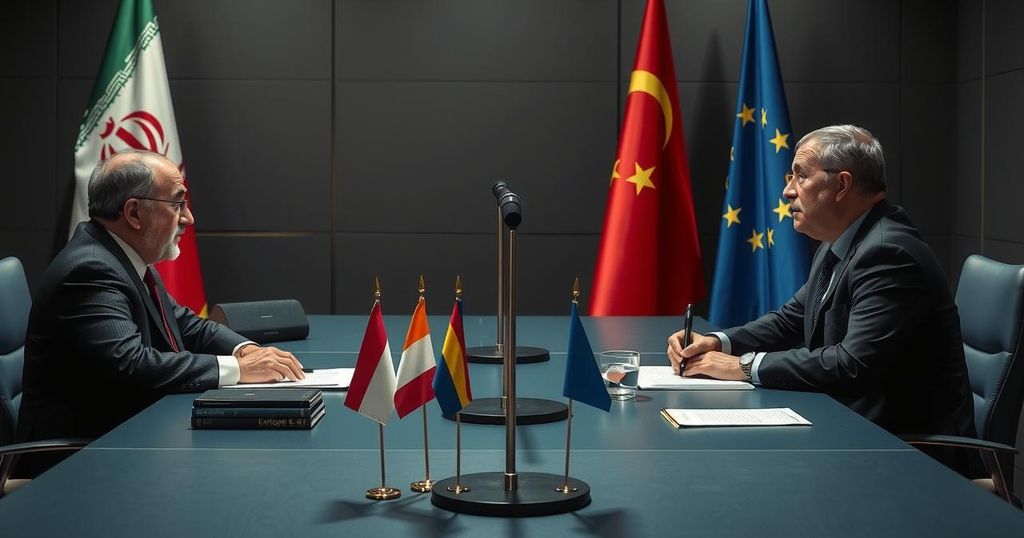Iran and European Powers Engage in Constructive Nuclear Discussions

Iran and European powers conducted constructive talks regarding Tehran’s nuclear program, focusing on lifting sanctions and ensuring compliance, in light of upcoming changes in U.S. leadership. The discussions reflect ongoing diplomatic efforts amid rising tensions over Iran’s nuclear activities and intentions.
On Monday, Iran and European powers engaged in what was described as “frank and constructive” talks regarding Tehran’s nuclear program, just a week prior to the inauguration of U.S. President-elect Donald Trump. This marked the second round of discussions within two months, following an earlier meeting in Geneva between Tehran and the E3 nations: Britain, France, and Germany. Although specifics of the discussions were not disclosed, both sides expressed a commitment to continue negotiations.
Iran’s state news agency, ISNA, reported that Deputy Foreign Minister Majid Takht-Ravanchi engaged in discussions with his E3 counterparts about various topics, including the lifting of sanctions and the regional situation. Takht-Ravanchi emphasized the seriousness and constructive nature of the dialogues, mentioning the need to formulate a conducive atmosphere to achieve a deal. In a joint statement, representatives from the E3 reaffirmed their dedication to finding a diplomatic solution despite challenging circumstances.
Prior to the sessions, the German foreign ministry characterized the discussions as “not negotiations” while Iran referred to them as mere consultations. The agenda included a broad spectrum of topics, with Iran asserting that the primary goal was to eliminate sanctions. In light of Trump’s anticipated return to the White House, concerns regarding Iran’s nuclear ambitions have gained renewed urgency, especially given the recent escalation of its nuclear program.
The ongoing tension is exacerbated by France’s remarks about Iran nearing a “breaking point” in its nuclear efforts, to which Iran responded by rejecting these claims as misleading. The urgency is further amplified by the impending expiration of the snapback mechanism, a provision allowing for the re-imposition of UN sanctions in cases of Iran’s significant non-performance. Iran continues to assert that its nuclear program is peaceful while showing willingness to negotiate the revival of the Joint Comprehensive Plan of Action (JCPOA).
As discussions continue, Iranian officials express a desire to restore the agreement, which previously provided sanctions relief in exchange for curtailing Iran’s nuclear activities. The political landscape remains complex, necessitating continued diplomatic engagement.
The negotiations between Iran and the E3 (Britain, France, and Germany) concern Tehran’s nuclear program, particularly in response to heightened scrutiny following the withdrawal of the United States from the JCPOA under President Trump. These talks are part of ongoing efforts to find a diplomatic solution to curb Iran’s nuclear activities, which have reportedly accelerated, raising international concerns. The backdrop includes increasing tensions and frustrations regarding Iranian compliance with previous agreements, highlighting the need for a renewed commitment to negotiations.
In conclusion, the recent talks between Iran and the European powers reflect a significant effort to address ongoing tensions surrounding Iran’s nuclear program. The parties involved have deemed the discussions constructive, emphasizing the necessity for future negotiations aimed at lifting sanctions and ensuring Iran’s compliance with international standards. As the geopolitical landscape shifts with the new U.S. administration, the urgency to achieve a diplomatic resolution remains critical.
Original Source: www.euractiv.com








